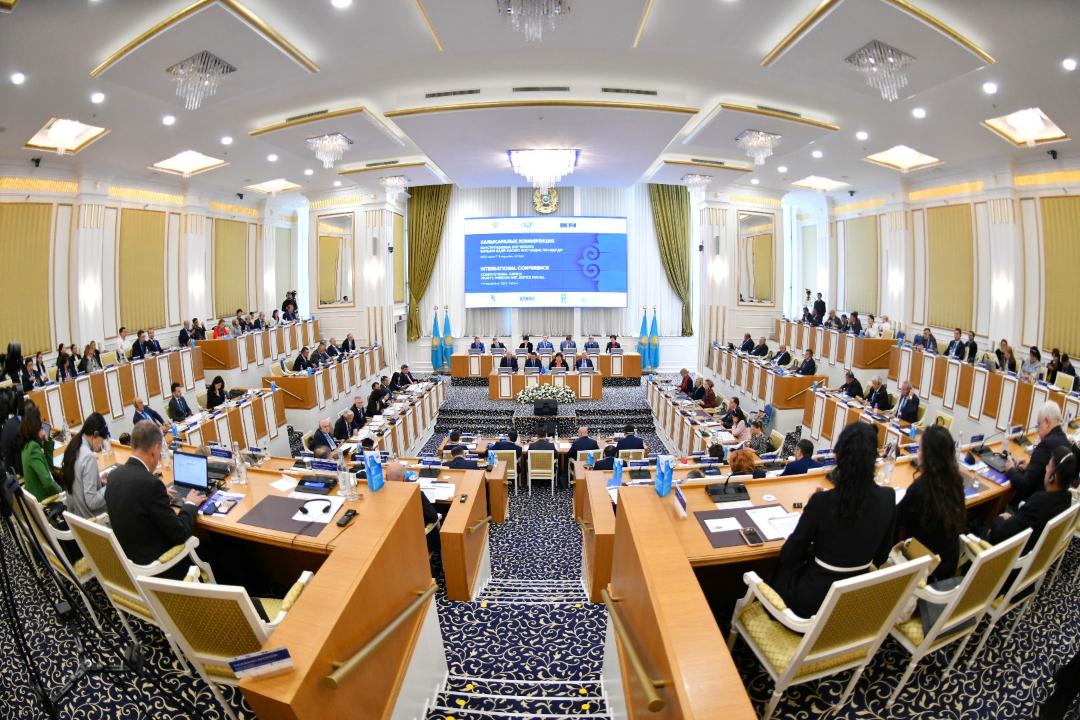ASTANA – The Constitutional Court of Kazakhstan hosted an international conference titled Constitutional Justice: Dignity, Freedom, and Justice for All, bringing together judges from the constitutional courts of 30 countries, the Court’s press office reported on Sept. 7.

The platform for dialogue brought together judges from the constitutional courts, representatives of the ombudsman’s office and human rights organizations from more than 30 countries around the world including Europe, Asia, and Africa. Photo credit: gov.kz.
The conference, dedicated to Kazakhstan’s Constitution Day and the 75th anniversary of the Universal Declaration of Human Rights, served as a platform to exchange experiences in the rule of law and legal supremacy.
Yerzhan Zhienbayev, assistant to Kazakh President Kassym-Jomart Tokayev on legal matters, delivered a greeting from the President, who emphasized that constitutional justice is one of the most important elements of a democratic society and a guarantor of the protection of citizens’ rights and freedoms.
Tokayev stated that Kazakhstan fully shares the approach of the Universal Declaration of Human Rights, a foundational document that necessitates broad cooperation in protecting and promoting human rights.
Elvira Azimova, Chair of the Constitutional Court, emphasized that the conference aimed to find a proportional, stable and peaceful balance between the interests of the state, society and the individual and ensure the rule of law in a way that addresses contemporary challenges while protecting innate human rights.
“The bodies of constitutional oversight, ensuring the supremacy of the Basic Law, safeguard these rights and freedoms of individuals and citizens,” she stated.
According to Azimova, the ability of citizens to directly appeal to the Constitutional Court and challenge the legality of legal acts allowed the Kazakh constitutional oversight body to review approximately 40 legal norms. Of these, seven were declared unconstitutional.
Overall, the Constitutional Court received 4,050 appeals from citizens.
The conference featured a special ceremony to unveil postage stamps, which were subsequently released into circulation by Kazpost. These stamps are dedicated to the Constitution of Kazakhstan, the 75th anniversary of the Universal Declaration of Human Rights, and the establishment of the Constitutional Court.
